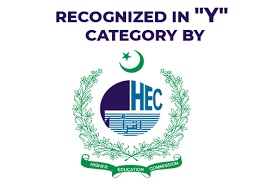An Alternative Islamic Mode of Finance for SMEs: A Case for Bai Salam
Abstract
 Abstract Views: 234
Abstract Views: 234
inancing and procurement play a vital role for the success of small and medium enterprises (SMEs), but, riba and gharar, commonly used in conventional transactions, are the barriers for the Muslims to get benefit of this deal. Riba is pre-determined excess return to the extended loan while Ghrar is a kind of uncertainty that may lead to dispute. Gharar includes selling of commodity which does not exist or which is not owned and possessed by a seller. Bai Salam is the best alternate Sharia compliant solution to riba and gharar based transaction. Bai Salam which is generally used in agricultural products can also be employed on non-agriculture objects. It can also be executed by way of parallel Salam. This paper aims to discuss Bai Salam and its implications on SMEs in the context of 2011 Punjab Assembly Bill.
Downloads
Authors retain copyright and grant the journal right of first publication with the work simultaneously licensed under a Creative Commons Attribution (CC-BY) 4.0 License that allows others to share the work with an acknowledgement of the work’s authorship and initial publication in this journal.












